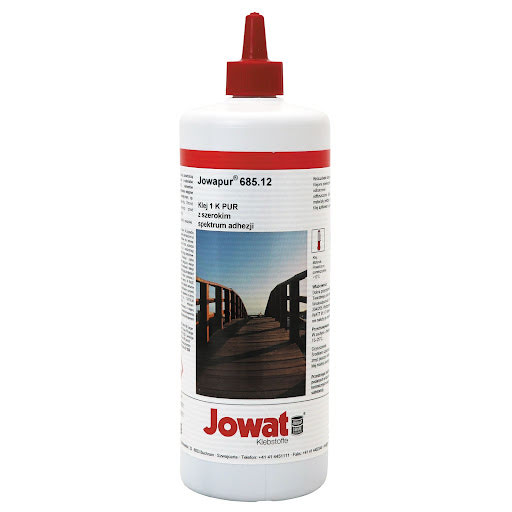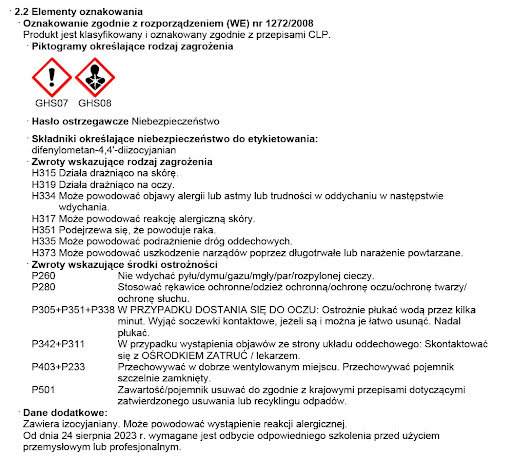JOWAPUR 685.12 - PUR


Zaloguj się lub zarejestruj, aby zobaczyć ceny produktów.
| Opakowanie | Ilość w pudełku | ||||
|---|---|---|---|---|---|

|
1 kg | ||||
| 6 | |||||
Do pobrania
Opis produktu
Structural bonding of soft wood, boards and foam materials. Adhesive for outdoor use. It has a strong foaming reaction.
Usage:
Bonding:
- mineral aggregate panels,
- partical boards,
- sandwich and composite panels from soft wood,
- PUR foam
- polystyrene
Characteristics:
One-component adhesive Jowapur 685.12 based PU prepolymer in brown appearance of the adhesive film without solvent and formaldehyde has good adhesion to many materials and high strength values. The adhesive Jowapur 685.12 cures with air humidity. It complies with the resistance class D4 according to DIN EN 204/205.
Processing temperature | > +10 | °C |
Open time at +20 °C/50 % relative humidity | 7–12 | min |
Pressing time at +20 °C | 20–30 | min |
Viscosity Brookfield at +20 °C | approx. 6,000 | mPas |
Density při +20 °C | approx. 1.1 | g/cm3 |
Solids | approx. 99 | % |
NCO content | approx. 14 | % |
Application:
Before using Jowapur 685.12 is advisable to perform self-testing, the properties of the materials and the processing conditions affect the bonding. The adhesive is usually applied on one side of surface. A spatula or roller is used to application. For non-absorbent materials and wood moisture below 8 %, the adhesive film or adhesive material should be lightly moistened with a spray. For moulding it is good to treat the press with a Jowat separating agent. We recommend using paper when the adhesive leaks.
Bonded larch wood needs to be protected from direct contact with water.
We recommend cleaning the adhesive from application tools by Hraniclean 03 (non-hardened adhesive) or Hraniclean 04 (hardened adhesive).
For detailed information see the Technical and Safety Data Sheet.
Packaging and storage:
Store in the original packaging in a dry and cold place for a period indicated on the label at temperatures of +15 to +25 °C. During transport the temperatures may be lower, from +6 to +14 °C, but the material may be exposed to these temperatures for a max. duration of 14 days. Cold material may not be processed, but must be previously warmed up slowly, about 2 to 3 days depending on the size of the package. Open packs can be further processed.